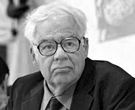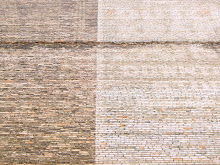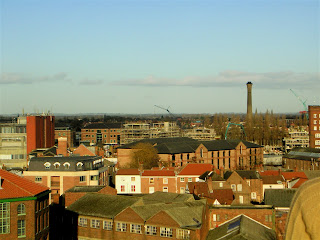Life is swell. I must say, this "undergraduate-sabbatical" (if such a thing exists) is faring wonderfully. I've settled into a normal mode of life here in York. I've planted herbs in my room (Mint and Basil) to use with food. I've even found several pretty great running routes.
No groundbreaking developments have manifested themselves. I put a web-cam on consignment at a local pawn-shop (as I threw away the receipt assuming it would work with my Mac...it didn't...I'll let everyone know if it sells ).
I recently purchased so me great loose-leaf tea from a Chinese market in Manchester (it keeps me up at night...but that's the point I think). To the left is a sweet picture of Clifford's tower I found on line. The photographer actually did a great job of hiding the surrounding city (which is a bustling center in downtown York, If you can believe it).
me great loose-leaf tea from a Chinese market in Manchester (it keeps me up at night...but that's the point I think). To the left is a sweet picture of Clifford's tower I found on line. The photographer actually did a great job of hiding the surrounding city (which is a bustling center in downtown York, If you can believe it).
I'll add more if more crosses my mind.
Be well.
JS
Monday, 25 February 2008
York, An Update!
"Rules are hardly more than synchronic idealizations of relatively informal, shifting Intentional regularities that cultural entities exibit?" Hmmm

This blog is quickly turning into a book list.
And, yes, I've started another work.
This time, it's Joseph Margolis' central work, Culture and Cultural Entities (available on line through Amazon.com for only $155.00!)
Interestingly enough, this is one of the few books I've lately read the goal of which is to set forth and expand upon an actual philosophical system.
I don't know who has written the Wikipedia entry for Margolis (perhaps it was Margolis himself!) but it's a fantastically written article. So, I'll post a small portion of the entry here as a sort of anonymous precis of his work. I'll also post ,below, a short video-clip featuring Margolis (et al) who were featured in a recent film titled, American Philosopher.
"Margolis is the current day champion of the ancient Protagoras in that he takes the latter’s dictum “Man the Measure” to its logical conclusions, showing how, strictly adhering to such a measure, all fixities and changeless first principles must give way to consensual, though not criterial, truth claims. Since “man”, the measure, is himself a creature of history, no modal claims of invariance can possibly be sustained. Margolis however avers that there need be no fixities either de re or de dicto or de cogitatione. The world is a flux and our thought about it is also in flux. Margolis sees the whole history of Western Philosophy as a struggle between the advocates of change and those who either, like Parmenides, deny that change is intelligible at all, or those, like Heraclitus, who find some logos or some law which allegedly governs whatever changes are admitted. He has critiqued the whole of the Western Philosophical Tradition from this viewpoint, showing how cognitive privilege may show up in the unlikeliest of places, such as in W.V. Quine’s advocacy of extensionalism, in spite of Quine’s own admittance that there is no reason why extensionalism should be adequate to “limn the ultimate structure of reality”. Margolis goes beyond critique, offering firm, constructive proposals concerning our truth claims and the possibilities of legitimation even under the conditions of accepting the ubiquity of the flux. Contrary to “postmodern” philosophers like Richard Rorty or Jean-François Lyotard, he shows that our lacking cognitive privilege means that the need for a philosophical justification of our choices and programs becomes more, not less, pressing now than at any previous time."
Link to clip.
JS
Sunday, 24 February 2008
Is There a Text In This Class?

I find myself constantly returning to the library here on campus.
I even find myself wandering off into the aisles during study times looking for books I haven't seen before. There are many I'd love to digest. Sometimes, I wish I could embrace everything in a library at once and dance around for a while in a world ruled by sentences. But I can only spend so much time in the library. And, I'm but human.
However, I did find something of interest today that I kind of just stumbled upon. I'm referring to Stanley Fish's Is There A Text In This Class? I've only scratched the Intr oduction. But my feel is that, similar to the impact Kuhn's Structure of Scientific Revolutions made within Philosophy of Science, Fish's book is an important contribution to the Literary Theory field. I'm excited to engage the book.
oduction. But my feel is that, similar to the impact Kuhn's Structure of Scientific Revolutions made within Philosophy of Science, Fish's book is an important contribution to the Literary Theory field. I'm excited to engage the book.
If I've noticed anything, though, it's that library resources vary greatly. Calvin students, I think, don't often realize the extent to which the Hekman library is poised and ready with a startlingly large amount of resource material. Any complaints about Hekman I've made in the past I feel like I ought to take back seven-fold. There are good acquisition librarians out there! And, Calvin is fortunate to have a top-notch staff working hard to provide students with great resources.
Libraries are great.
"if meaning is embedded in the text, the reader's responsibilities are limited to the job of getting it out; but if its meaning develops, and if it develops in a dynamic relationship with the reader's expectations, projections, conclusions, judgments and assumptions, these activities (the things the reader does) are not merely instrumental, or mechanical, but essential, and the act of description must both begin and end with them." (Fish 1980, 3)
JS
Friday, 22 February 2008
Norwegian Krone and more from Richard Rorty


Two things:
This afternoon, Ryan and I set off to exchange a bit of currency in preparation for our trip this upcoming spring.
So we decided to trade £20.o5 for kr200.00. Each week we will gather currencies for each of our destinations so we are ready for travel. Next week, we'll be trading in our pounds for Icelandic króna. The exchange rate doesn't seem to be in Iceland's favour. We'll be getting 2624.81 isk for our little £20.00 exchange. But, I'm pretty sure Iceland's economy is slightly inflated. Who knows, perhaps we'll be paying 1000 isk for a loaf of bread?
slightly inflated. Who knows, perhaps we'll be paying 1000 isk for a loaf of bread?
Also, if anyone is interested, I am providing a link to the 2006 Dewey Lecture which Rorty gave. It's slightly geared towards specialists, yet only slightly. If you have some time, sit down a give it a listen. It's worth the investment.
Lecture.
JS
Thursday, 21 February 2008
Scruton

I am currently reading Roger Scruton's conservative Manifesto and lamentation England: An Elegy.
It's an odd book. I enjoy working through Scruton's descriptions. He longs, it seems, for an England that was. Then again, I don't necessarily know what his England looked like in the first place. His longings seem to be forever caught up with the presence of place. For he states on pages 39 & 40 of the book that, "Even when the word 'Britain' appeared in the title--and this was rarely--the text and the illustrations made it clear that is was England which was at stake, England being, first and foremost, the countryside." This claim strikes me as peculiar inasmuch as I don't know how 'countryside' can be the primary source of an ethos (or geist for my Germanophone readers).
Don't misunderstand me, however. The English countryside is enchanting. Nevertheless, I would not go as far as to state that it is the source of the English disposition.
Scruton is a dyed in the wool Romantic Nationalist. And this isn't necessarily a bad thing. A certain amount of nationalist pride goes with place and people--it is part and parcel of one's very "being-there." But I fear that Scruton conflates nationalist pride with a certain prescriptivist agenda. This sort of technique is somewhat sly yet clearly a lost cause. The UK has seen massive change in the past 2000 years. And I fear that Scruton's analysis is lacking a certain plasticity necessary in sociological diagnosis. Scruton is just a bit too Xenophobic for his own good. And the England he longs for is of an era quite distant from modern Britain.
On a somewhat lighter note, check out the Manchester Art Gallery Website and scroll through some of the on-line facsimile's of Pre-Raphaelite artwork. We visited the gallery late last week and strolled through its collection. I was quite impressed.
JS
Tuesday, 19 February 2008
Minster, Polaroids and Rorty


Ryan and I set out on our own last week during a book release reception at the Minster.
We thought our Luddite sensibilities would mesh well with the quintessentially Gothic feel of the Cathedral. So we took some Polaroids.
I think we were right.
The pictures are a bit dark (partly because the gigantic Minster absorbs any light thrown at it). Polaroid flash: 0, Minster: 1.
I'd also like to add a link to an essay I have really enjoyed since its publishing. It's a piece by Richard Rorty for Poetry Magazine and captures him in one of his rarest forms. It's a beautiful piece.
Rorty Essay.
JS
Tuesday, 12 February 2008
Picnic and Jumping


Several days ago a small group of us walked across town to the University of York for a small and rather impromptu picnic.
The University is a bit larger than York St. John and feels like a state school you'd find in the US.
The picnic was enjoyable and the food good. We had purchased some real British scones from a local bakery which we enjoyed on a set of stone steps I tried to jump over with mixed success:
JS
Thursday, 7 February 2008
Uncovering

For some reason, the UK has prompted me to get back into much of the ambient music I was taken with a year ago.
Here are a few videos I've been returning to recently:
Glosoli
Hoppipolla
JS
Wednesday, 6 February 2008
Tourists Unite!
Today saw the unfolding of another excursion.
I must say, the outing was fun.
The group stopped at the Yorkshire Museum to view artifacts from years ago and to add more to our historical understanding of the Roman conquering of Great Britain. Clifford's Tower was also on our visit list. Click here for more information regarding its history.
Our time spent in the museum was actually all too short. It's situated in such a way that moving through its exhibits is enjoyable and informative. More time would have been wonderful. I gained a unique understanding today of how resolute the Romans actually were. Ryan and I even called into question the "narrative of progress" and divined about the movement of history. Perhaps progress more often undulates than ascends?
I think Rorty is correct when he writes in an essay Method, Social Science, Social Hope that,
"[upon viewing the social sciences as continuous with literature] We shall see the anthropologists and historians as having made it possible for us--educated, leisured policy makers of the West--to see any exotic specimen of humanity as also "one of us" (Consequences, p. 203)."
JS
Tuesday, 5 February 2008
I carry things around...
Click here to listen to a few tunes that have been animating my time in the UK.
Also, here's something I worked on this afternoon:
I sought a bit of home today
A brief touch of familiar
It's difficult to find here.
Watched an old film last night..
A little touch of familiar
It doesn't seem to be here.
I had forgotten
Of my time on an Island
About the art of the unexpected.
I'm sure
If we don't cry
When we warm both hands before the fire of life,
Were drowsy
At the unveiling.
JS
Elbow Room
Here I've posted a short video highlighting my living accommodations. Notice i.) the sink in my room (a fine idea in my mind) ii.) the charming little "back-yard" I have (I really appreciate the intricate and cost-effective ways York is planned) and iii.) Superman (he made the trip with me to the UK and is keeping me safe.) Turn the volume down fully as there was a bit of annoying noise interference.
Enjoy
JS
Sunday, 3 February 2008
History Lesson
Yesterday, our group toured the ancient aspects of the city. Our tour-guide from the preservation society, a man dressed completely in black with a wit unlike any I've experienced, led us around the Roman ruins of the city in a manner that was actually very informative. Click here for an overview of most of what he covered.
Also, here's a bit of fascinating history: The Emperors Hadrian, Septimius Severus and Constantius I all held court in York during their various campaigns. During his stay, the Emperor Severus proclaimed York capital of the province of Britannia Inferior, and it is likely that it was he who granted York the privileges of a colonia or city. Constantius I died during his stay in York, and his son Constantine the Great was proclaimed Emperor by the troops based in the fortress.
I'm still really impressed at the extent to which York seeks to preserve its most ancient and prized artifacts. Most of the city's walls are intact (save for a stretch that was destroyed by the Victorians to allow for a bypass to be constructed through the middle of the city).
I'll admit that the novelty of the "otherness" of York is waning. Yet, this isn't cause for lament. If anything, it's signaling a new phase in my time here. It's only been a week (and this is difficult to believe as I feel like it's been much longer) but I feel like, at this point, I'm moving towards becoming a contributive member of the city and its economy--in some sense maturing as a visitor.
In the months ahead, I anticipate further acclimation to an environment Ryan and I discussed just today as "strikingly similar yet palpably different."
JS
About Me

- John
- York, Yorkshire, United Kingdom
- "My sense of the holy is bound up with the hope that some day my remote descendants will live in a global civilization in which love is pretty much the only law." -Richard Rorty (see Jürgen Habermas' obituary for Rorty here:http://www.signandsight.com/features/1386.html.)













